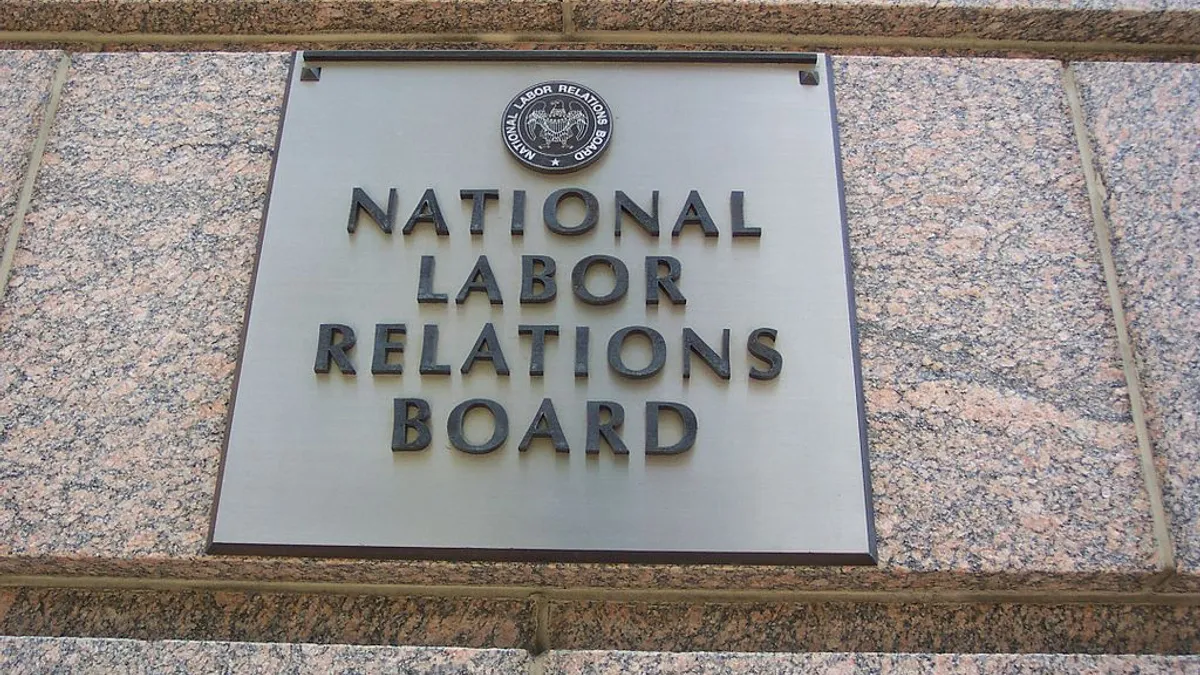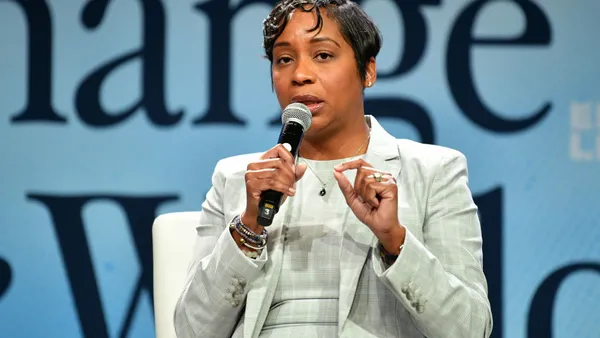Dive Brief:
- The National Labor Relations Board's (NLRB) joint employment standard has cost the franchising sector as much as $33.3 billion annually, according to the International Franchise Association (IFA). The standard also resulted in as many as 376,000 lost job opportunities, it said.
- The IFA told NLRB that it supports a return to the National Labor Relations Act (NLRA) joint-employer standard that existed prior to the Board's 2015 decision in Browning-Ferris Industries of California v. NLRB, which created the new standard.
- The organization's comment was submitted in response to the NLRB's proposed rulemaking for determining joint-employer status. Under the September 2018 proposed rule, an employer would be considered a joint employer of another employer's employees only if the two employers shared or codetermined the employees' essential terms and conditions of employment, such as hiring, firing, discipline, supervision and direction.
Dive Insight:
Stakeholders say Browning-Ferris had a major impact on franchises, upending the traditional understanding of the franchisor-franchisee relationship. Franchisees were once seen as independent, putting little burden on corporate partners. Under Browning-Ferris, however, franchisors could conceivably be considered joint employers of franchisees' employees for purposes of the NLRA, exponentially increasing the compliance burden and liability exposure for franchisors.
IFA, as the world's largest organization representing franchising, is unsurprisingly critical of the 2015 decision. In its recent comments, it said "the Board's expansion of the joint employer standard has caused significant operational and economic harm to franchising, both for franchisors and franchisees, stifling the creation of business ownership and family equity, two of the essential benefits to franchising."
"Given the breadth of the new joint employment standard, franchisors have justifiably been fearful that providing the same services to franchisees now that they provided prior to Browning-Ferris — such as training, store inspections, and operational advice — could result in charges that they are joint employers with their franchisees, and thereby liable for their franchisees' actions," the IFA continued.
NLRB previously attempted to reverse the standard through litigation, but conflict-of-interest concerns prevented it from doing so. Representatives from other industry groups, particularly those in retail, have urged Congress to step in and clearly define joint employment through legislation.
The NLRB has now decided to tackle the shift via regulation, and has extended the comment period for its proposal three times. Stakeholders had until Jan. 28 to comment, while comments in reply to other comments will be accepted through Feb. 11















